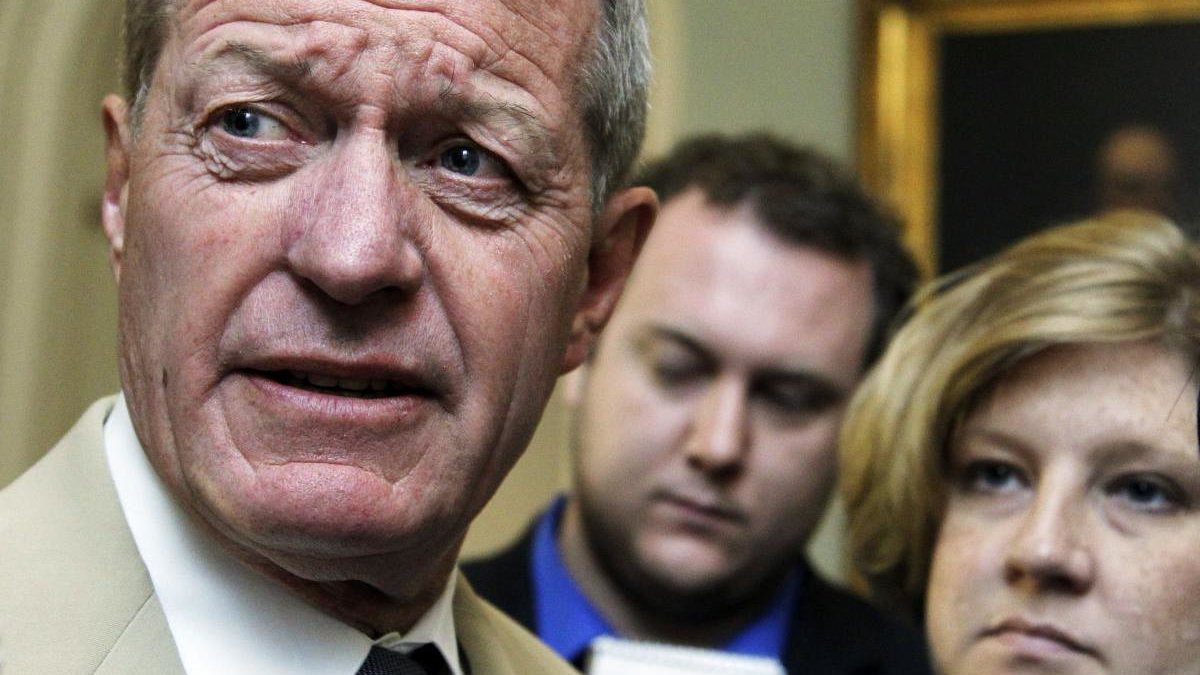Efforts to recall three Montana federal legislators for their support of the United States’ National Defense Authorization Act (NDAA) would face constitutional roadblocks, according to political scientists and written a legal analysis. In December, a group of Montanans began an effort to recall the state’s U.S. congressional delegation, consisting of Democrat senators Max Baucus, Jonathan Tester and Republican congressman Denny Rehberg for their support of the NDAA.
The legislation contains a clause that would allow the United States to indefinitely detain persons they suspect of terrorism-related activities. Outrage against the measure has risen over its alleged violation of habeas corpus – or the right to face a judge if detained. President Barack Obama signed the legislation into law on December 31 and quickly faced criticisms of its violation of not only the Bill of Rights but also international law. The NDAA is a piece of legislation that specifies the budget for the United States Department of Defense and is updated and signed into law every year. Resentment of the bill stems from two-section addendum that deals with indefinite detention without trial and requirements for military custody. The American Civil Liberties Union released a written statement the same day President Obama signed the provision, saying:
the breadth of the NDAA’s detention authority violates international law because it is not limited to people captured in the context of an actual armed conflict as required by the laws of war.”
Recall efforts
In a press release, the Montana group made note of a perceived clause that made Montana one of nine states with the right to recall members of its federal delegation, “on the grounds of physical or mental lack of fitness, incompetence, violation of oath of office, official misconduct, or conviction of certain felony offenses.”
James Lopach, a political science professor at the University of Montana, said there are a couple of issues that arise in the effort and interpretation of Montana law.
There are two questions: One would be the statutory issue – what does the Montana law authorize?” Lopach said. “And second would be the U.S. constitutional issue.”
According to the 2011 version of Montana Code Annotated under Montana Law states, “Any person holding a public office of the state or any of its political subdivisions, either by election or appointment, is subject to recall from office.”
Lopach calls the terminology of the clause “vague” and also points to a constitutional conflict, citing the United States Supreme Court case, U.S. Term Limits, Inc. v. Thornton. In that case, the court ruled against states imposing rules for members of the United States Congress that are stricter than those laid out within the U.S. Constitution.
Massachusetts attorney David Grossack addressed the issue of a limited number of states and their rights to recall federal legislators in a legal analysis written for the U.S. Citizens Association. Grossack writes that the Founding Fathers “deliberately omitted language enabling recall from the Constitution, and some use this as a basis for arguing that recall is not constitutionally permissible.”
Grossack continued: “The Founding fathers did, however, subsequent to the body of the Constitution, amend it. … Most appropriate to this discussion is the Tenth Amendment. The Tenth Amendment reads as follows: The powers not delegated to the United States by the Constitution nor prohibited by it to the States, are reserved to the States respectively, or to the people.”
David Parker, assistant professor of political science at Montana State University, agrees with Lopach in that states do not have the overall authority to launch a recall effort of a federal official, despite a state clause.
Using a state law to recall a federal official clearly smacks as a violation of the supremacy clause of the constitution,” Parker said. “If this person wants to have an affect, they should file suit against that law and not the lawmakers.”
A court issue
The effort to recall the three federal legislators in Montana was brought forward by Montana residents William Cain and Stewart Rhodes, according to The Huffington Post. The effort charges the legislators with violating their oaths to protect the U.S. Constitution by voting for the NDAA. Montana is currently the only state with an effort to recall federal legislators over their vote.
The Montana Code Annotated requires a particular number of signatures to be obtained to start the recall process. However, it does not detail how many signatures are needed to recall a federal legislator. The state law required “10% of the number of persons registered to vote at the preceding state general election” in order to begin the recall process for “elected or appointed state officers.” Nowhere in the code does it lay out requirements for federal legislators.
Grossack goes back to the tenth amendment, explaining that the vague terminology seen there would result in a federal court hearing.
“After reviewing the body of law and opinion concerning recall, it is apparent that if recall of federal legislators is to succeed, it will likely only be after an intense battle in the federal court system as to the degree to which the courts will go to allow the literal meaning of the Tenth Amendment to be in force and effect,” Grossack wrote.
And even if it made it to the courts, Grossack noted that “it is a fact that in our nation’s history, no federal legislator has yet been recalled.”
Parker agreed that recall elections on all levels usually fall flat.
“I can tell you that recall elections are almost never successful,” Parker said.
Messages left for Stewart Rhodes went unanswered.
Feature photo | AP


